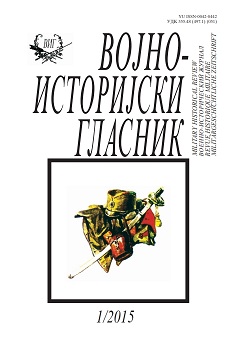Југословенско-совјетске несугласице 1974–1976. и њихов утицај на међународни положај Југославије
Yugoslav-Soviet Disagreements, 1974–1976, and their Influence on the International Position of Yugoslavia
Author(s): Dragan BogetićSubject(s): Diplomatic history, Political history, International relations/trade, Post-War period (1950 - 1989), Peace and Conflict Studies
Published by: Institut za strategijska istraživanja
Keywords: Yugoslavia; USSR; USA; Tito; Brezhnev; cooperation; dispute; disagreement; non-alignment; international relations;
Summary/Abstract: With the proclamation of a new Yugoslav constitution in 1974, some of the causes of serious debate between the Soviet and Yugoslav leadership were emphasized even more. In the period that followed, not even serious ideological differences between the two countries have been reduced the friction. This was not realistic to happen, because Yugoslavia and the Soviet Union had different model of socialist societies as well different positions in international relations. Continuing problems during this period were caused by: different approaches to the “role of the Party in socialist transfiguration of the society”; permanent Soviet restraints related to Yugoslav internal development and foreign policy orientation; different perceptions of principles envisioned for relations among socialist states; different approaches towards the value of rapprochement with China; activities of Cominform emigration on both Soviet and Yugoslav soil; different approaches towards the resolution of the ongoing energy crisis caused by Soviet objections related to writings in the Yugoslav press; and because of Yugoslav dissatisfaction with the Soviets diminishing the role of the Yugoslav struggle in Second World War during the celebrations of 30th anniversary (and emphasis of Red Army contribution to the liberation of Yugoslavia). However, in order to improve bilateral cooperation and stabilize its own international position, major ideological differences were pushed into the background, kept aside, or relativized. Although they were pointed out, they were not eliminated. Both sides agreed to accept these differences. In this sense, a new “legitimacy” of mutual disagreement showed up in practice, that is, the right of the Soviets to criticize Yugoslav policies, as well as of Tito and his associates to reject legitimate criticism.
Journal: Vojnoistorijski glasnik
- Issue Year: 2015
- Issue No: 1
- Page Range: 157-182
- Page Count: 26
- Language: Serbian

